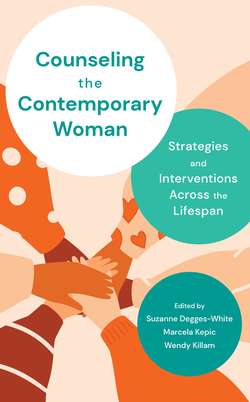Читать книгу Counseling the Contemporary Woman - Suzanne Degges-White - Страница 17
На сайте Литреса книга снята с продажи.
National Origin
ОглавлениеNational origin is often overlooked as a critical diversity factor in women’s experience. Immigrants can occupy different statuses, including naturalized citizens, permanent residents, refugees, asylees, temporary visa holders, and undocumented immigrants. The reasons people immigrate vary considerably, and the sociopolitical context of host countries and possible premigration trauma (e.g., witnessing violence, unexpected death of a loved one) pose significant mental health risks for refugees and immigrants with different racial cultural identities from different areas of the world (Sangalang et al., 2018; Shishehgar, Gholizadeh, Digiacomo, Green, & Davidson, 2017). Immigrant and refugee women often face differential risks of violence and trauma. In a study of refugee and undocumented immigrant women, Goodman, Vesely, Letiecq, and Cleaveland (2017) identified three trauma types among participants, including sociopolitical context surrounding immigration, trauma related to their political and citizens status, and postmigration trauma, some of these gender based in nature, including rape and witnessing sexual assault. Common stressors include family separation, language barriers, employment, and economic and situational stressors (Goodman et al., 2017; Shishehgar et al., 2017). The multitude of separations and disruptions in relationships can have deleterious effects; however, the importance of familial relationships, connection with similar others, and social service agencies were identified as contributing to resilience (Goodman et al., 2017).
